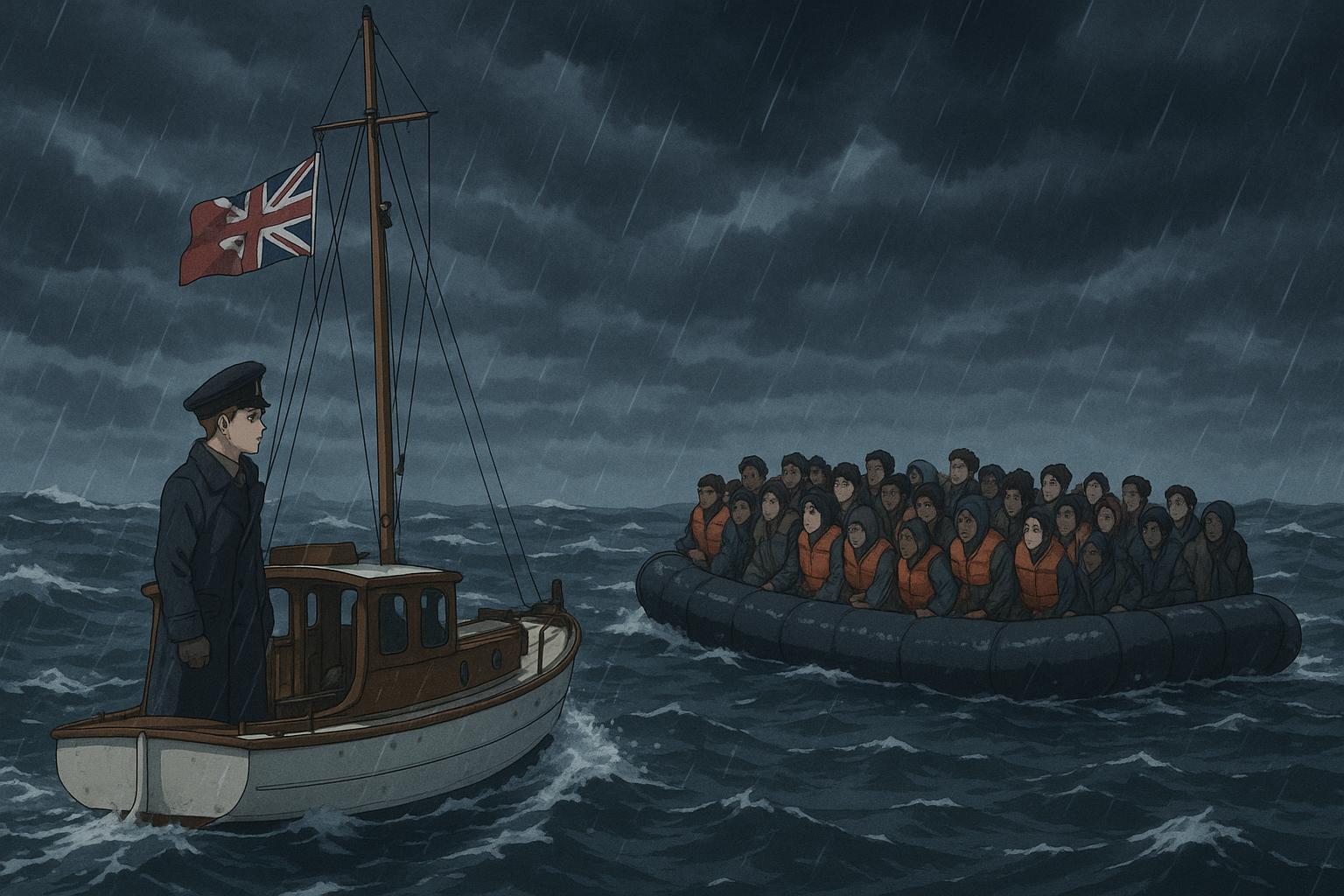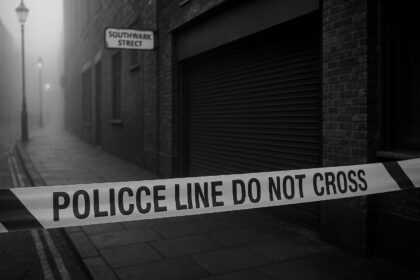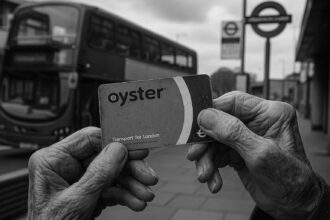A commemorative flotilla marking 85 years since the Dunkirk evacuation was forced to halt after a migrant boat triggered a one-nautical mile exclusion zone in the English Channel, highlighting escalating challenges and humanitarian risks in one of Europe’s busiest sea crossings.
A recent commemorative flotilla intended to mark the 85th anniversary of the Dunkirk evacuation faced an unexpected interruption when a migrant boat traversing the English Channel necessitated a diversion. The event, a tribute to Operation Dynamo—during which over 338,000 Allied troops were rescued from the beaches of Dunkirk during World War Two—was underway with 66 vessels, affectionately dubbed the “Little Ships,” crossing the Dover Strait from Ramsgate to Dunkirk. Organisers were caught off-guard as UK Border Force and the French Navy mandated a one-nautical mile exclusion zone around the migrant vessel, effectively halting the flotilla’s progress.
This incident underscores the ongoing challenges at the Channel, a busy route that has become a focal point in the broader migrant crisis. This year, more than 35,000 people have attempted the perilous crossing, a nearly 22% increase from the previous year. Tragically, 2024 has also been marked as the deadliest year on record for such crossings, with at least 73 lives lost in attempts to reach the UK, highlighting the grave risks migrants face, especially during winter months when conditions can be treacherous.
Controversy over tactics used to intercept these migrant crossings has heightened as well. Reports have emerged detailing aggressive measures employed by French authorities, including dangerous ‘pullback’ operations intended to obstruct migrant boats from reaching British shores. These manoeuvres, which include ramming vessels and causing flooding, have raised alarms among humanitarian groups who warn that such actions could result in a mass casualty event. Search and rescue experts have expressed concern that these tactics endanger vulnerable migrants, with even tragic instances noted where desperate individuals were forced back into perilous conditions at sea.
The situation was starkly illustrated over the recent Christmas period, when over 850 individuals made the crossing within just two days, coinciding with relatively calm sea conditions. While French authorities managed to conduct 12 separate rescue operations during this time, the duality of these events—the commemorative flotilla alongside ongoing migrant rescue operations—paints a poignant picture of contrast between historical remembrance and a contemporary humanitarian crisis.
The recent developments not only reflect the ongoing humanitarian challenges but also signify the interplay between national policies and international maritime laws. The UK has now introduced a controversial Border Security, Immigration, and Asylum Bill, which aims to impose stricter penalties for those refusing rescue assistance. This move has drawn criticism for potentially exacerbating the dangers faced by those attempting the crossing while blurring the lines of responsibility for ensuring safe passage and humanitarian support.
As the UK grapples with the complexities of migration and the broader implications of its policies, the legacy of events like the Dunkirk evacuation serves as a reminder of the moral obligations held by nations when it comes to those in peril on the waters. The memories of past rescues during wartime now stand alongside attempts to safeguard lives in present-day crises, weaving together a narrative rich with both historical significance and urgent relevance.
Reference Map
- Paragraph 1: Sources 1, 2
- Paragraph 2: Sources 4, 5
- Paragraph 3: Sources 3
- Paragraph 4: Sources 5, 6
- Paragraph 5: Sources 6, 7
Source: Noah Wire Services
- https://www.express.co.uk/news/world/2058489/migrant-boat-ruins-british-ww2 – Please view link – unable to able to access data
- https://www.express.co.uk/news/world/2058489/migrant-boat-ruins-british-ww2 – A flotilla of boats crossing the Channel to mark the 85th anniversary of the Allied evacuation of Dunkirk was forced to divert so that Border Force could escort a migrant boat coming the other way. The party of ‘Little Ships’ was crossing the Dover Strait to commemorate Operation Dynamo—where more than 338,000 Allied troops were rescued from the beaches of Dunkirk during World War Two. However, the 66 ships marking the day were forced to divert en route from Ramsgate to Dunkirk, as UK Border Force and the French Navy demanded a one-nautical mile exclusion zone around the vessel.
- https://www.theguardian.com/uk-news/2024/mar/23/uk-funding-french-migrants-small-boat-border-forces – French police funded by the UK government have endangered the lives of vulnerable migrants by intercepting small boats in the Channel, using tactics that search and rescue experts say could cause a ‘mass casualty event’. Shocking new evidence obtained by the Observer, Lighthouse Reports, Le Monde and Der Spiegel reveals for the first time that the French maritime police have tried physically to force small boats to turn around – manoeuvres known as ‘pullbacks’ – in an attempt to prevent them reaching British shores. Newly obtained footage, leaked documents and witness testimonies show that the French authorities have used aggressive tactics including circling a migrant boat, causing waves to flood the dinghy; ramming into a small boat while threatening passengers with a large tank of pepper spray; and puncturing boats when they are already at sea, forcing migrants to swim back to shore.
- https://www.theguardian.com/world/2024/dec/26/france-rescues-more-100-people-trying-to-cross-to-uk-on-christmas-day – French maritime authorities carried out 12 rescue operations along the coast of northern France on Christmas Day, rescuing 107 people in distress from small boats trying to cross to the UK. On Christmas morning, 30 passengers were rescued from a boat near Dunkirk, while the others onboard wished to continue their journey and were taken into British custody once they reached UK waters, said the French Channel and North Sea maritime prefect’s office. Another boat experiencing engine damage was spotted later in the day, also near Dunkirk. Its passengers called for help and all 51 people onboard were rescued. Later, 26 people were taken off another boat experiencing difficulty near Calais. More than 450 people crossed the Channel in small boats on Christmas Day, according to the Home Office. The figures, updated on Thursday, indicated that 451 people arrived on 11 boats. The last time vessels carrying migrants were known to have arrived was on 14 December, when 160 people arrived in three boats. Weather conditions on Christmas Day meant that Channel waters were relatively calm with less wind, causing more people to attempt dangerous crossings. Many departures were observed on the northern French coast during what authorities called an ‘intense’ day. Charities had warned of potential deaths over Christmas. Departures were seen from Dieppe in Seine-Maritime to Leffrinckoucke near Dunkirk, as small boats and dinghies continued to push off along an increasingly long stretch of the northern French coast. The maritime prefect’s office said in a statement that the Channel was ‘a particularly dangerous area, especially at the height of winter for precarious and overloaded boats’.
- https://www.infomigrants.net/en/post/61947/channel-migration-over-850-people-cross-to-uk-over-christmas-period – More than 850 migrants crossed the English Channel from France to England on Christmas Day and Boxing Day. This came after an 11-day period in which no migrant boats arrived in the UK. A total of 451 people crossed the English Channel in 11 small boats on Christmas Day (December 25). A day later, on Boxing Day, 407 people crossed the Channel in ten small boats. In total, 858 people landed within the two days. This came after a week and a half in which no migrants arrived in the UK on small boats; previously, the last arrivals had been on December 14, involving 160 people across three boats. The figure for Christmas Day was the second highest recorded for December of this year; 609 people had arrived on December 12. Weather conditions can affect how many migrants set off across the Channel from France. Around Christmas, sea temperatures were relatively high for this time of year (around 10°C) and winds were calmer than previously. The total number migrants who arrived in small boats in the UK in 2024 has now reached 35,898, which is almost 22% more than the previous year, though still 27% fewer than 2022. On Christmas Day, French authorities also conducted 12 rescue operations, saving 168 migrants who were attempting to cross the Channel. Two groups of 30 people and 51 people were near Dunkirk, one of their boats was reportedly experiencing engine trouble. A third rescue operation took place near Calais, where 26 people were saved from a boat in distress. By the evening (on December 25), 61 migrants on another vessel requested assistance and were safely transported to Calais. The Channel remains a perilous route, especially in winter, with overloaded and precarious boats. In total, 73 migrants have died attempting to cross the Channel in 2024, making it the deadliest year for such crossings on record.
- https://www.gbnews.com/news/migrant-crisis-small-boat-arrivals-2025 – More than 2,000 small boat migrants have crossed illegally from France since the beginning of the year, GB News can exclusively reveal. The grim milestone figure was reached last night, when the Border Force vessel Typhoon arrived at Dover harbour with at least 138 migrants on board. They were picked up from two migrant boats that made it into UK waters on Tuesday evening. Earlier in the day, another small boat was intercepted with 24 migrants on board. GB NEWS That migrant boat had been involved in an earlier dramatic rescue after suffering engine failure in heavy swells several miles from the French port of Dunkirk. French maritime authorities attended the scene and managed to persuade 38 people onboard the migrant boat to accept rescue assistance. They were taken back to Dunkirk and assessed by medical services. But 24 migrants refused to get off the boat, and after restarting their engine, continued towards UK waters. The Government’s new Border Security, Immigration and Asylum bill, currently making its way through Parliament, will create a specific offence for those refusing offers of rescue. LATEST DEVELOPMENTS: Albanian people smuggler allowed to stay in UK after becoming ‘valuable member of society’ ‘It’s a strain!’ Locals in uproar as huge 93-acre refugee site forced upon quiet village Thousands of Uber Eats couriers SACKED amid major crackdown on illegal immigrants GB NEWS Those who turn down assistance from maritime authorities could be charged with ‘endangering another person’. Tuesday’s arrivals take the told number of migrants who have made the illegal crossing by small boat since the new year to at least 2,055. Bad weather for much of January and February has left few days in which conditions are calm enough for people smugglers to launch their boats from French beaches.
- https://www.telegraph.co.uk/news/2024/07/18/border-force-takes-migrants-back-france-channel-rescue/ – The Border Force catamaran Ranger assisted in the rescue, which was in French waters, then returned 13 asylum seekers to Calais at the request of French authorities. One migrant died and a further 71 were saved from the water in the joint Anglo-French operation, launched after their boat deflated. France usually demands any migrants rescued by Border Force vessels are taken to the UK, and has long resisted calls by Conservative politicians for rescued migrants to be returned to France to deter further attempts to cross the Channel. Home Office sources confirmed it was the first time a British Border Force vessel had taken migrants back to France, but said it was not a change of policy. It is understood that UK Government officials see it as an example of how Sir Keir’s attempt to reset relations with Europe is already working. The French interior ministry said it was standard practice under maritime law for operational commanders to direct any vessel with rescued people on board to the nearest port which was Calais.













